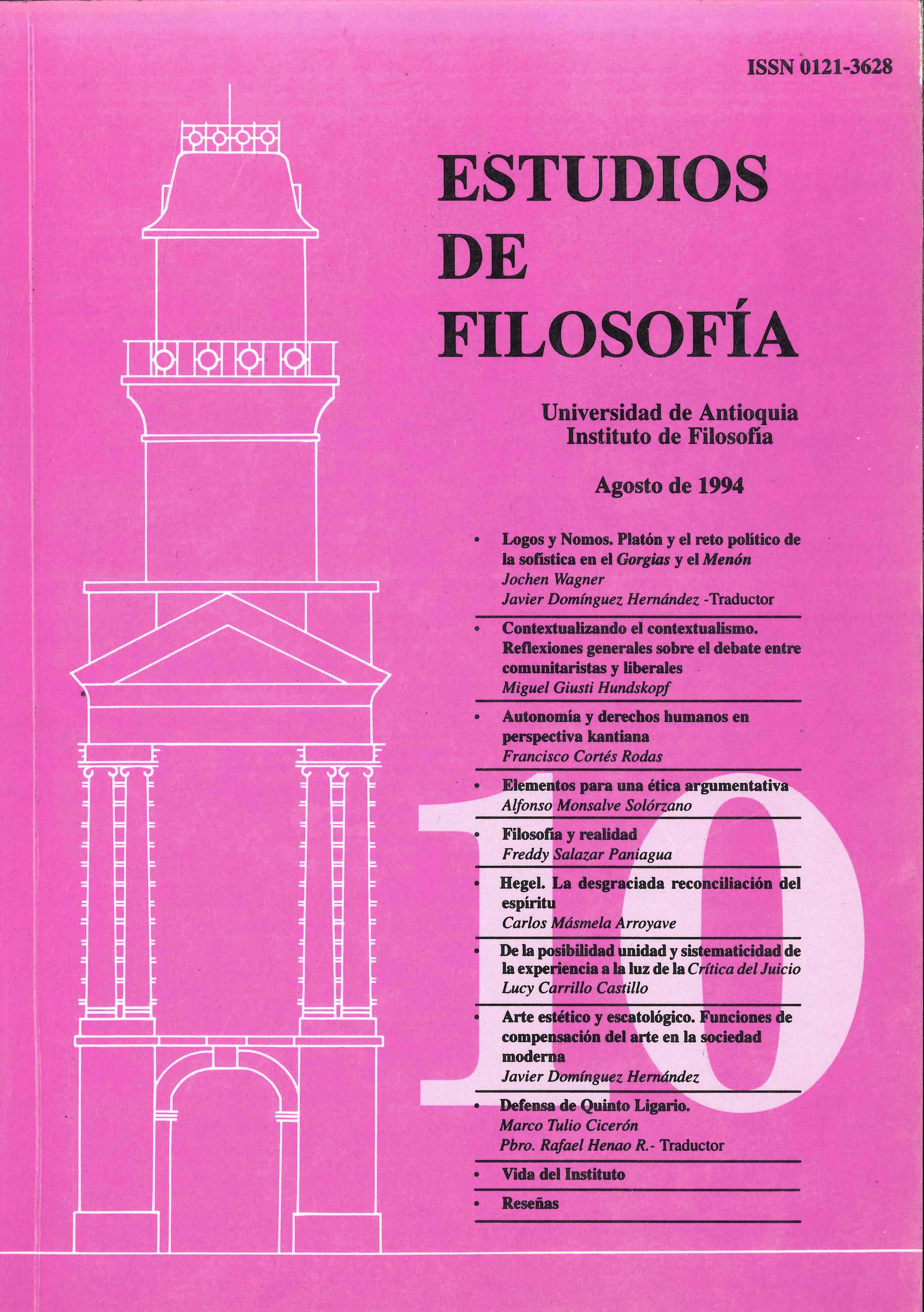Hegel: the reconciliation of spirit in disgrace
DOI:
https://doi.org/10.17533/udea.ef.338809Keywords:
Hegel, Phenomenology of spiritAbstract
The idea of the Phenomenology of Spirit is intimately linked to the idea of system. But the conception of the latter is part of Hegel's philosophic itinerary, wherefore it is by no means easy to understand the link existing between the two. It is considered, as an example, that the Phenomenology is an introduction to the system, or its first part. The present article pretends to interpret it as an introduction; however, not in the sense of a preliminary essay that would be external to the system, but rather as a presupposition for its constitution. This effort supposes that the idea of the Phenomenology is approached from within its structure and its internal unfolding. The idea is thereby revealed in the phenomenon of disgrace. Although Hegel attributes it at first to the conscience of self as the end of its history, neither does the phenomenon mentioned end in it, nor does it find its origin there. This origin is to be found in the absolute reconciliation of spirit. The reconciliation of absolute spirit in disgrace determines the intention of the Phenomenology and constitutes the condition that makes the conception of the system
Downloads
Downloads
Published
How to Cite
Issue
Section
Categories
License
Copyright (c) 1994 Carlos Másmela

This work is licensed under a Creative Commons Attribution-NonCommercial-ShareAlike 4.0 International License.
Authors who publish with this journal agree to the following terms:
1. The Author retains copyright in the Work, where the term "Work" shall include all digital objects that may result in subsequent electronic publication or distribution.
2. Upon acceptance of the Work, the author shall grant to the Publisher the right of first publication of the Work.
3. The Author shall grant to the Publisher a nonexclusive perpetual right and license to publish, archive, and make accessible the Work in whole or in part in all forms of media now or hereafter known under a Creative Commons Attribution-NoCommercia-ShareAlike (CC BY-NC-SA 4.0), or its equivalent, which, for the avoidance of doubt, allows others to copy, distribute, and transmit the Work under the following conditions: (a) Attribution: Other users must attribute the Work in the manner specified by the author as indicated on the journal Web site;(b) Noncommercial: Other users (including Publisher) may not use this Work for commercial purposes;
4. The Author is able to enter into separate, additional contractual arrangements for the nonexclusive distribution of the journal's published version of the Work (e.g., post it to an institutional repository or publish it in a book), as long as there is provided in the document an acknowledgement of its initial publication in this journal;
5. Authors are permitted, and Estudios de Filosofía promotes, to post online the preprint manuscript of the Work in institutional repositories or on their Websites prior to and during the submission process, as it can lead to productive exchanges, as well as earlier and greater citation of published work (see The Effect of Open Access). Any such posting made before acceptance and publication of the Work is expected be updated upon publication to include a reference to the Estudios de Filosofía's assigned URL to the Article and its final published version in Estudios de Filosofía.















